
Boulsa: The Hidden Gem of Burkina Faso
Boulsa, a small town in Burkina Faso, offers a unique and authentic African experience that is often overlooked by mainstream tourism. Nestled in the heart of the country, Boulsa is a place where tradition and culture are deeply rooted in everyday life, giving visitors a chance to immerse themselves in the local way of living. The town is known for its vibrant markets, where you can find a variety of handmade crafts, textiles, and fresh produce. The local artisans are skilled in traditional crafts, and their works are perfect souvenirs to take home. The market is also a great place to engage with the friendly locals and learn more about their customs and traditions. Nature lovers will enjoy the scenic landscapes surrounding Boulsa. The region is dotted with baobab trees and offers picturesque views that are perfect for photography enthusiasts. For those interested in history, Boulsa is home to several ancient sites and traditional mud-brick houses that provide a glimpse into the past. Boulsa also hosts several cultural festivals throughout the year, celebrating music, dance, and local folklore. These events are a fantastic way to experience the rich cultural heritage of the area. Whether you are an adventurer, a history buff, or someone looking to relax and soak in the local culture, Boulsa has something to offer everyone.
Local tips in Boulsa
- Visit the local market early in the morning for the freshest produce and the best selection of handmade crafts.
- Bring a good camera to capture the stunning landscapes and unique architecture.
- Learn a few basic phrases in French or the local language to enhance your interactions with the locals.
- Check the local festival calendar before planning your trip to experience the vibrant cultural events.
- Wear comfortable shoes as you will likely do a lot of walking while exploring the town and its surroundings.
Boulsa: The Hidden Gem of Burkina Faso
Boulsa, a small town in Burkina Faso, offers a unique and authentic African experience that is often overlooked by mainstream tourism. Nestled in the heart of the country, Boulsa is a place where tradition and culture are deeply rooted in everyday life, giving visitors a chance to immerse themselves in the local way of living. The town is known for its vibrant markets, where you can find a variety of handmade crafts, textiles, and fresh produce. The local artisans are skilled in traditional crafts, and their works are perfect souvenirs to take home. The market is also a great place to engage with the friendly locals and learn more about their customs and traditions. Nature lovers will enjoy the scenic landscapes surrounding Boulsa. The region is dotted with baobab trees and offers picturesque views that are perfect for photography enthusiasts. For those interested in history, Boulsa is home to several ancient sites and traditional mud-brick houses that provide a glimpse into the past. Boulsa also hosts several cultural festivals throughout the year, celebrating music, dance, and local folklore. These events are a fantastic way to experience the rich cultural heritage of the area. Whether you are an adventurer, a history buff, or someone looking to relax and soak in the local culture, Boulsa has something to offer everyone.
When is the best time to go to Boulsa?
Iconic landmarks you can’t miss
Monument of National Heroes
Discover the Monument of National Heroes in Ouagadougou, a tribute to Burkina Faso's legacy and the brave individuals who shaped its history.
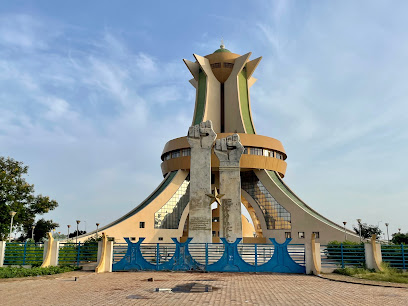
Grande Mosquée de Boulsa
Discover the architectural beauty and cultural significance of the Grande Mosquée de Boulsa, a spiritual haven in Burkina Faso.
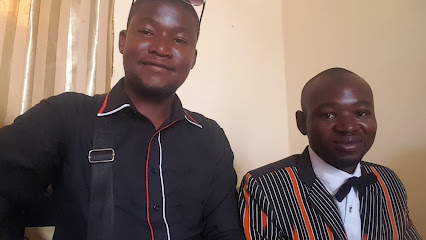
School Provincial
Explore School Provincial in Boulsa, a cornerstone of the local education system and a vibrant hub of community learning.

Essential places to dine
Chez Simon
Discover authentic Lebanese flavors at Chez Simon in Ouagadougou - where every meal is a celebration of taste and tradition.
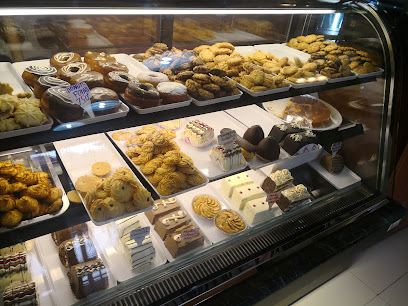
La Véranda
Discover La Véranda in Ouagadougou - where local flavors meet international cuisine in an inviting atmosphere.
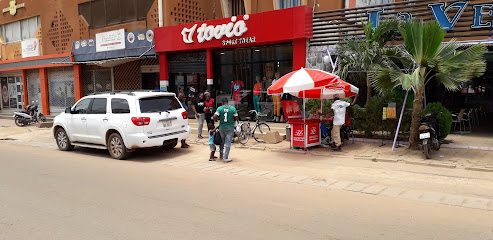
Gondwana
Discover the rich flavors of Burkina Faso at Gondwana in Ouagadougou - where tradition meets modern dining.
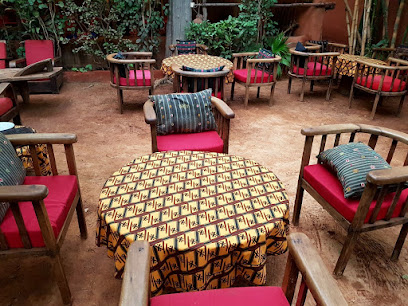
Asanka Locals Restaurant
Savor authentic Burkinabé flavors at Asanka Locals Restaurant - a culinary delight in Ouagadougou.
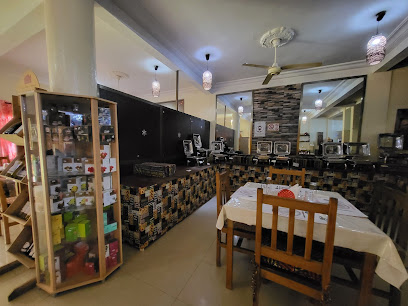
benoua lodge
Experience the flavors of Burkina Faso at Benoua Lodge in Ouagadougou – where culinary tradition meets modern dining.
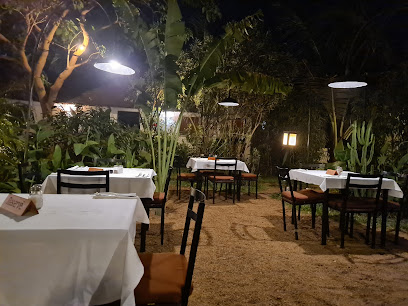
LAA VITA RESTAURANT
Experience authentic Burkinabé cuisine at Laa Vita Restaurant in Ouagadougou – where local flavors meet global tastes.
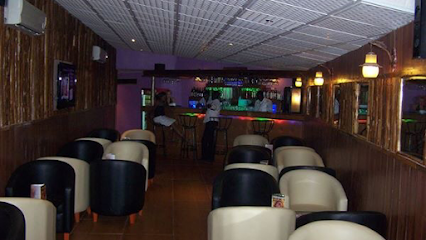
Le NOMADE
Experience the rich flavors of Burkina Faso at Le NOMADE, where tradition meets modern dining in the heart of Ouagadougou.
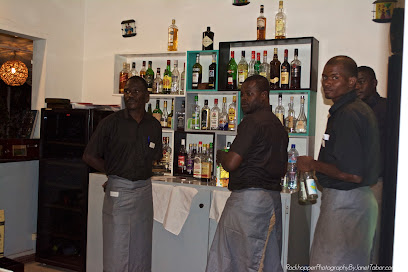
Les Vermeilles Restaurant
Experience authentic barbecue delights at Les Vermeilles Restaurant in Ouagadougou - a culinary haven for flavor enthusiasts.
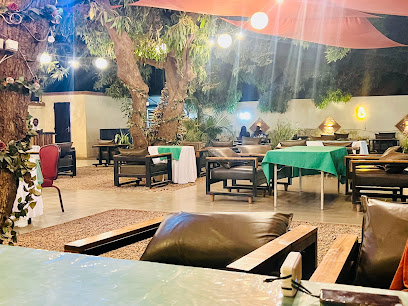
Restaurant La Villa
Discover authentic Burkinabé flavors at Restaurant La Villa in Ouagadougou – a culinary haven for food enthusiasts.
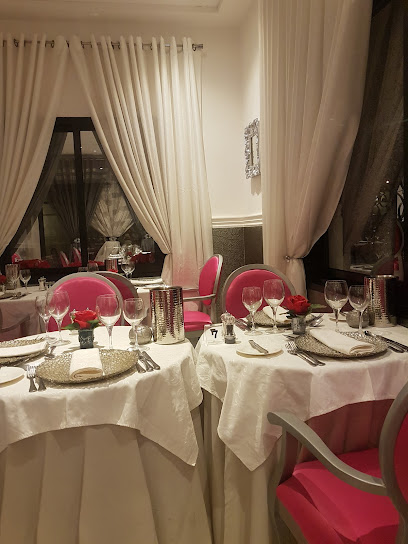
YELBA
Discover the heart of Burkinabé cuisine at Yelba in Ouagadougou—an unforgettable dining experience awaits you.
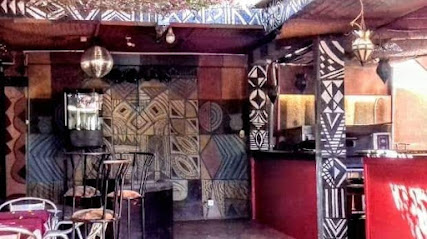
Restaurant Aboussouan
Experience authentic West African cuisine at Restaurant Aboussouan in Ouagadougou – where every meal tells a story.
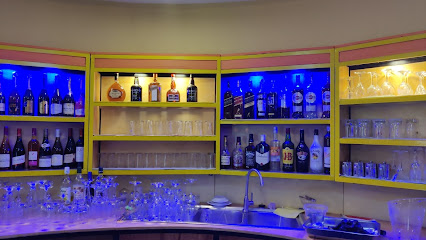
Porc au four
Experience authentic African flavors at Porc au Four in Ouagadougou - where delicious roasted pork meets vibrant local culture.
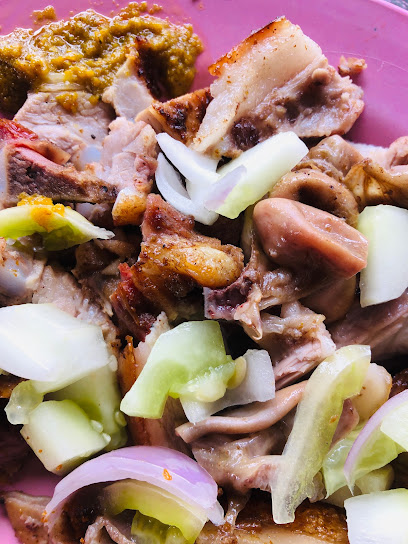
Restaurant Pierini
Experience authentic Burkinabe cuisine at Restaurant Pierini in Kaya - where local flavors meet friendly hospitality.
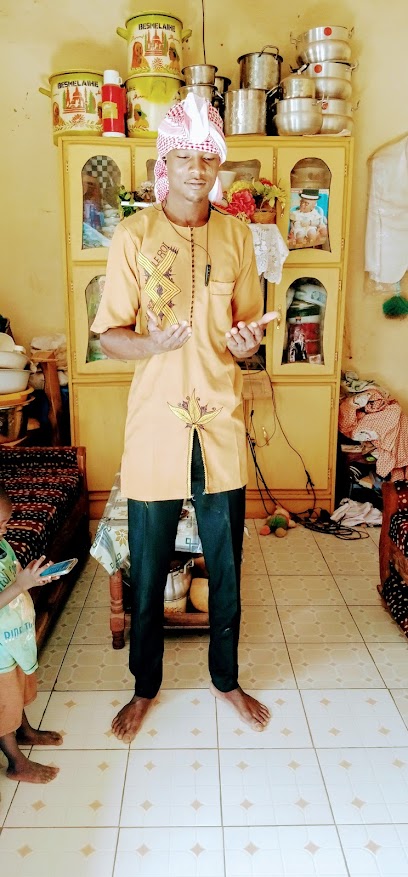
le makena
Discover authentic Burkinabé cuisine at Le Makena in Ouagadougou's vibrant Tampouy neighborhood, where every meal tells a story.
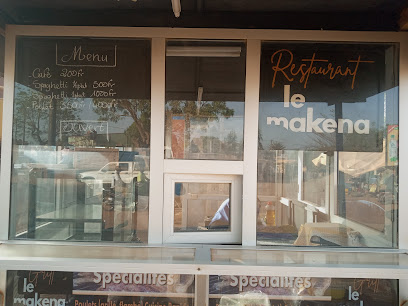
Chellas Cafe And Restaurant (Indian, African, Lebanon & Mediterranean Cuisine)
Experience the vibrant flavors of India, Africa, Lebanon & Mediterranean at Chellas Cafe And Restaurant in Ouagadougou.
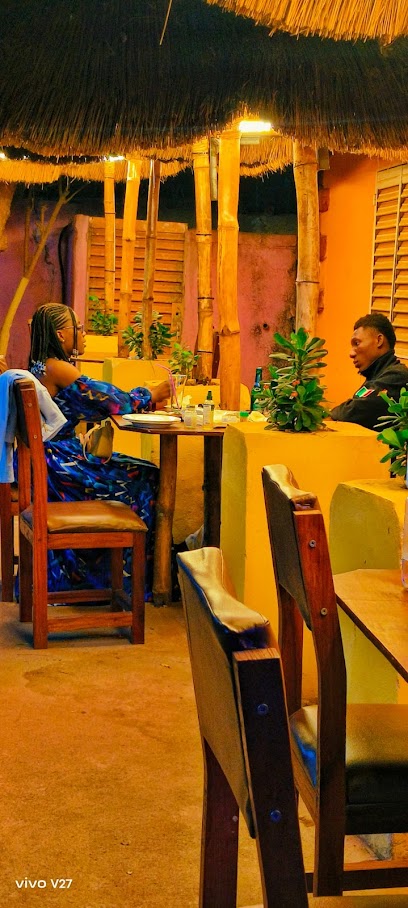
Markets, malls and hidden boutiques
Burkina Pas Chèr
Explore Burkina Pas Chèr in Ouagadougou for unique gifts and authentic souvenirs celebrating the vibrant culture of Burkina Faso.
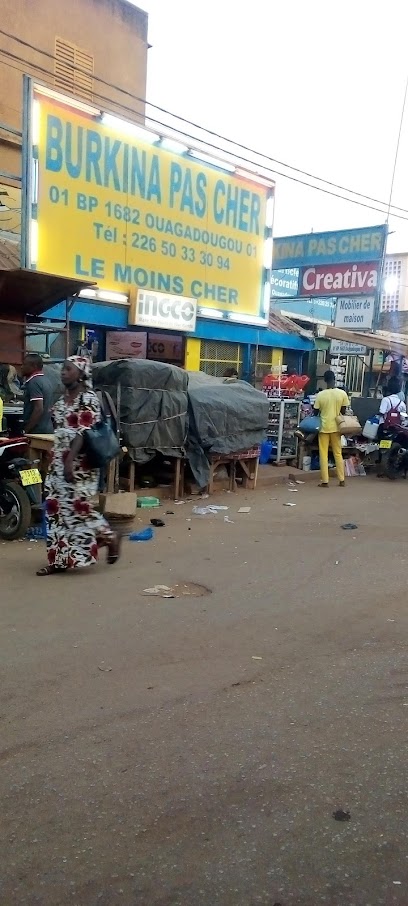
Boutique alimentation pang ya wend & frères
Discover the sweet taste of Pouytenga at Boutique Alimentation Pang Ya Wend & Frères, where delightful ice cream awaits every visitor.
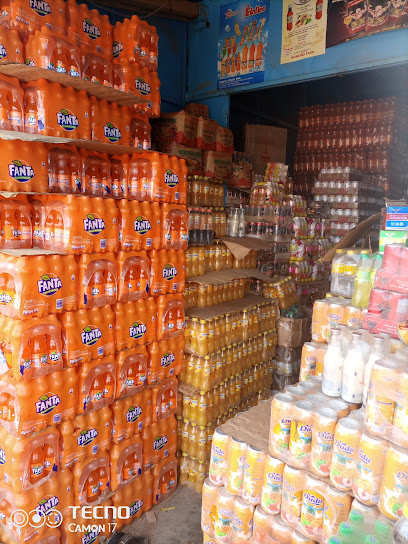
Boutique ZIDA
Discover the vibrant fashion scene at Boutique ZIDA in Pouytenga, where style meets local culture in a charming retail experience.
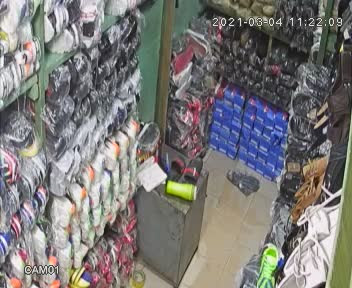
Emanuel IMA
Discover Emanuel IMA in Boulsa, your trusted source for top-quality building materials, ideal for locals and tourists alike.
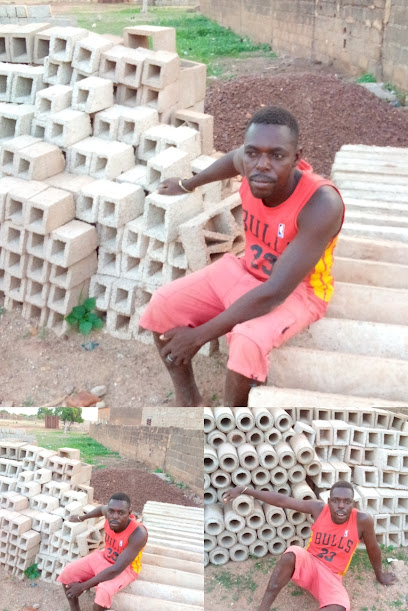
Boutique alimentation pang ya wend
Savor the rich flavors of artisan ice cream at Boutique Alimentation Pang Ya Wend in Sapaga, a delightful stop on your culinary journey.

Boussima Shop
Explore unique fashion at Boussima Shop in Karpala, Ouagadougou, where local culture meets contemporary style.
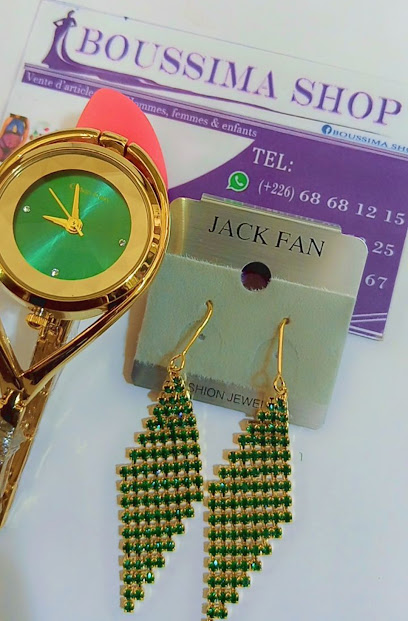
Mini alimentation chez MANDE
Explore the vibrant culture of Burkina Faso at Mini Alimentation chez MANDE, your go-to gift shop for unique treasures in Koupela.
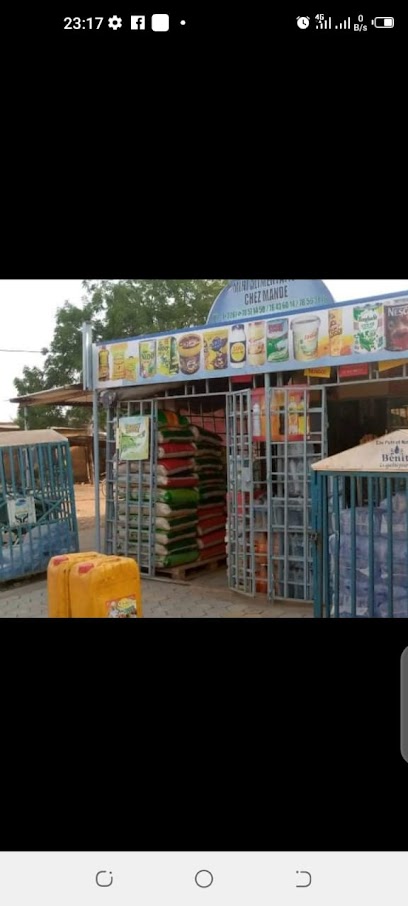
Boutique petit bosd
Explore Boutique Petit Bosd for a unique shopping experience that combines local culture with modern retail in the heart of Kaya.

Alimentation Ouedraogo et frère
Explore the vibrant culture of Burkina Faso at Alimentation Ouedraogo et frère, your go-to gift shop for authentic local crafts and souvenirs.
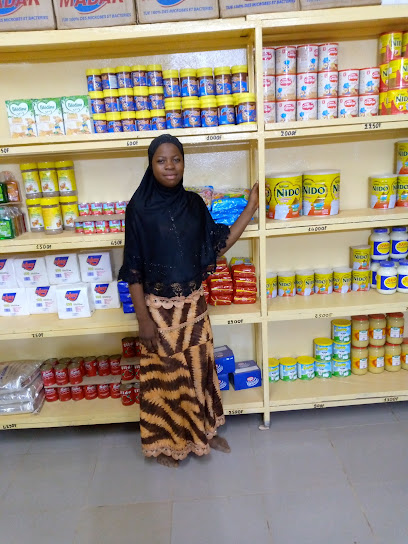
LIBRAIRIE SOMWAOGA
Explore the literary beauty of Librairie Somwaoga, Boulsa's premier bookstore offering a unique collection of local and international literature.
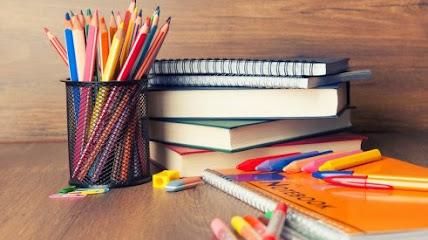
IB telecom
Explore the innovative world of technology at IB Telecom, Boulsa's premier smart shop for all your gadget needs.
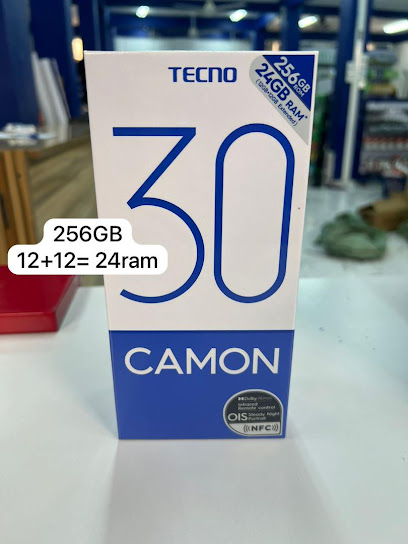
Francky Peinture
Explore Francky Peinture in Boulsa for a dive into local craftsmanship and unique hardware finds, enriching your travel experience.
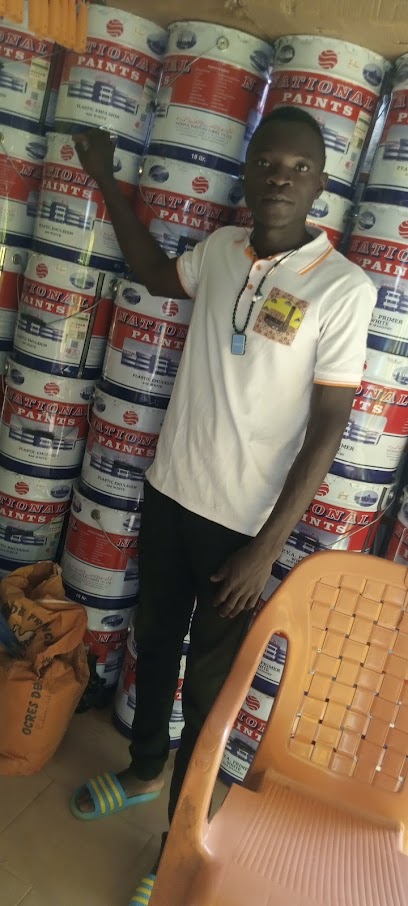
Pharmacie Ste Marie de Boulsa
Discover the trusted Pharmacie Ste Marie de Boulsa, your go-to for health essentials in the heart of Boulsa, ensuring well-being for every traveler.
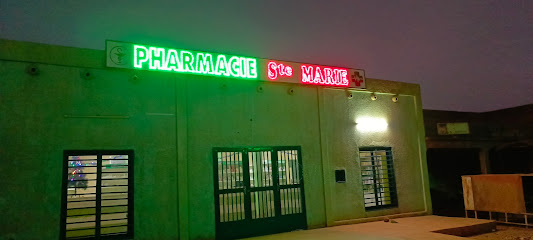
Chez RASMANE
Explore the heart of Boudry Department at Chez RASMANE, where local artistry meets unique treasures for every traveler.

Théophile shop
Explore the vibrant plus-size fashion scene at Théophile Shop in Boulsa, where style meets comfort and individuality thrives.
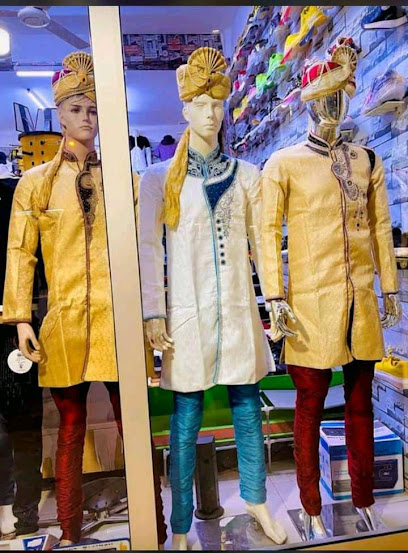
Essential bars & hidden hideouts
Le Titis
Experience the vibrant nightlife at Le Titis, a lively bar in Ouagadougou offering local and international drinks in a charming atmosphere.
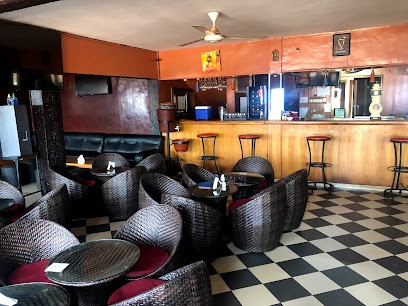
The Taxi Brousse
Discover the lively atmosphere of The Taxi Brousse in Koulouba, Ouagadougou, where locals and tourists come together to unwind with affordable drinks and great company.
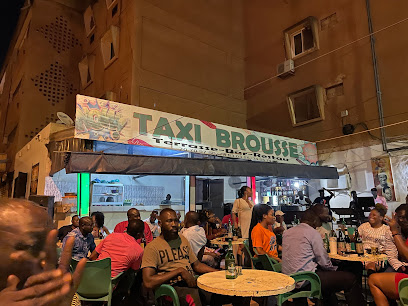
Boulgou Bar
Discover the vibrant Boulgou Bar in Ouagadougou, where local culture meets refreshing drinks in a lively atmosphere.
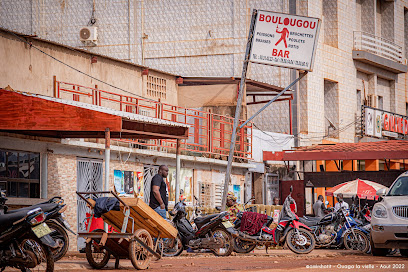
Sport Bar
Experience the vibrant nightlife at Sport Bar in Ouagadougou, where sports, drinks, and great company come together for an unforgettable evening.
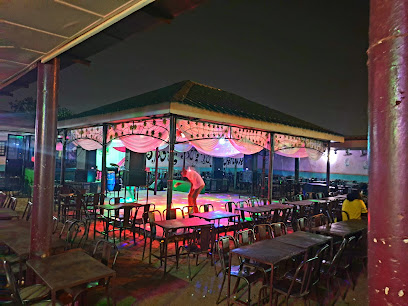
Diam's lounge
Discover the heart of Ouagadougou's nightlife at Diam's Lounge, a vibrant bar offering local culture and a lively atmosphere.
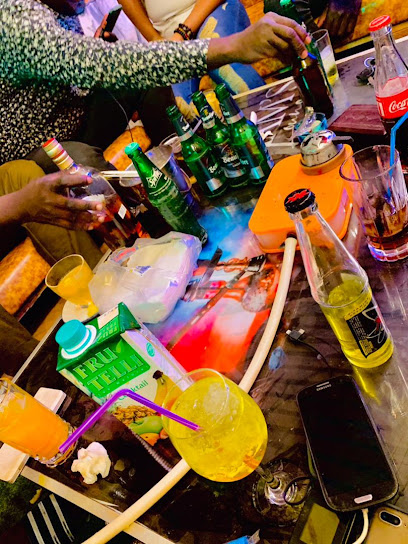
Sweet bar pub
Discover the vibrant nightlife of Ouagadougou at Sweet Bar Pub, where local culture meets great drinks and live entertainment.
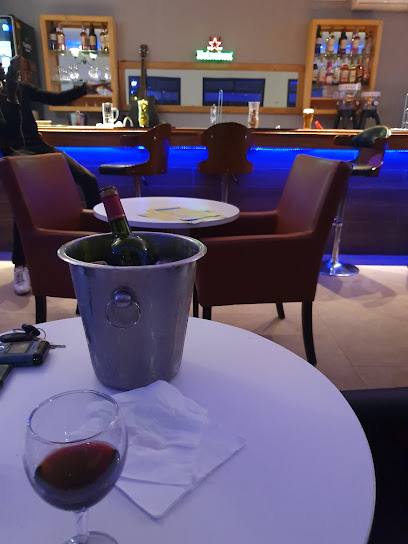
Guitare Bar
Experience the vibrant rhythms of Burkina Faso at Guitare Bar, Ouagadougou's premier live music destination.
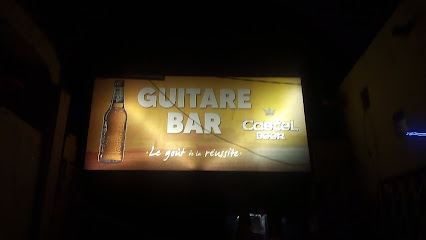
la parenthese bar resto lounge
Experience the best of local and international cuisine at La Parenthèse Bar Resto Lounge in Ouagadougou, where ambiance meets exceptional taste.
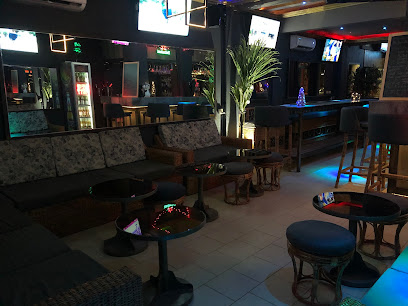
ALL NIGHT
Experience the vibrant nightlife of Ouagadougou at ALL NIGHT, a 24/7 bar in Kalgondin offering a lively atmosphere and delightful drinks.
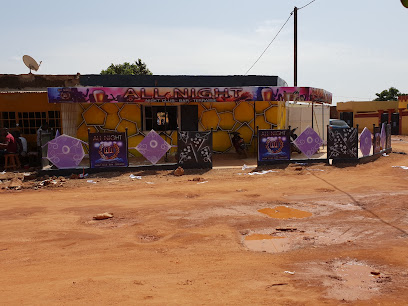
Amical bar
Discover the lively atmosphere of Amical Bar in Sandogo, Ouagadougou, where local culture meets a vibrant nightlife experience.
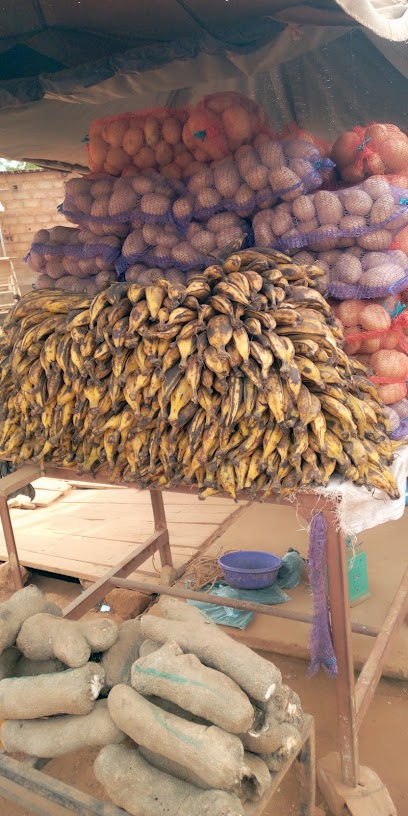
HAKUNA MATATA
Experience the vibrant nightlife at Hakuna Matata Bar in Boulsa, where local culture meets a lively atmosphere and delightful drinks.

Trap House Lounge Bar Restaurant
Experience the vibrant atmosphere of Trap House Lounge Bar Restaurant in Ouagadougou, where local flavors and nightlife converge for an unforgettable evening.
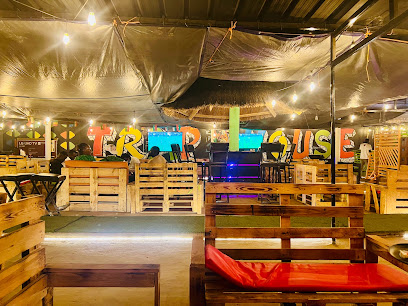
PUB RENDEZ VOUS SEKTAABA
Discover the vibrant nightlife at Pub Rendez Vous Sektaaba, where locals and travelers enjoy a lively atmosphere and a taste of Ouagadougou's culture.
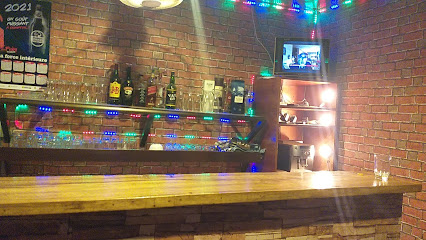
Jardin du maire de Boulsa
Discover the serene beauty of Jardin du Maire de Boulsa, a tranquil oasis perfect for relaxation, cultural events, and family outings.
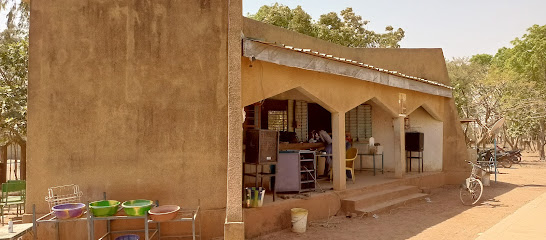
Local Phrases about Boulsa
-
- HelloSalut
[sah-loo] - GoodbyeAu revoir
[oh reh-vwar] - YesOui
[wee] - NoNon
[nohn] - Please/You're welcomeS'il vous plaît
[seel voo pleh] - Thank youMerci
[mehr-see] - Excuse me/SorryPardon
[pahr-dohn] - How are you?Comment ça va?
[koh-mahn sah vah] - Fine. And you?Ça va bien. Et toi?
[sah vah byen. ay twah] - Do you speak English?Parlez-vous anglais?
[par-leh voo ahn-glay] - I don't understandJe ne comprends pas
[zhuh nuh kohm-prahn pah]
- HelloSalut
-
- I'd like to see the menu, pleaseJe voudrais voir le menu, s'il vous plaît
[zhuh voo-dray vwahr luh meh-noo, seel voo pleh] - I don't eat meatJe ne mange pas de viande
[zhuh nuh mahnj pah duh vyahnd] - Cheers!Santé!
[sahn-tay] - I would like to pay, pleaseJe voudrais payer, s'il vous plaît
[zhuh voo-dray pay-yay, seel voo pleh]
- I'd like to see the menu, pleaseJe voudrais voir le menu, s'il vous plaît
-
- Help!Au secours!
[oh seh-coor] - Go away!Allez-vous en!
[ah-lay vooz ahn] - Call the Police!Appelez la police!
[ah-peh-lay lah poh-lees] - Call a doctor!Appelez un médecin!
[ah-peh-lay uh meh-deh-sahn] - I'm lostJe suis perdu(e)
[zhuh swee pair-doo] - I'm illJe suis malade
[zhuh swee mah-lahd]
- Help!Au secours!
-
- I'd like to buy...Je voudrais acheter...
[zhuh voo-dray ash-tay] - I'm just lookingJe regarde juste
[zhuh ruh-gahrd zhuhst] - How much is it?Combien ça coûte?
[kohm-byen sah koot] - That's too expensiveC'est trop cher
[say troh shair] - Can you lower the price?Pouvez-vous baisser le prix?
[poo-veh voo beh-say luh pree]
- I'd like to buy...Je voudrais acheter...
-
- What time is it?Quelle heure est-il?
[kell er ay-teel] - It's one o'clockIl est une heure
[eel ay-tuhn er] - Half past (10)Dix heures et demie
[dees er ay-ruh ay duh-mee] - MorningMatin
[mah-tahn] - AfternoonAprès-midi
[ah-pray mee-dee] - EveningSoir
[swahr] - YesterdayHier
[yehr] - TodayAujourd'hui
[oh-zhoor-dwee] - TomorrowDemain
[duh-mahn] - 1Un
[uhn] - 2Deux
[duh] - 3Trois
[twah] - 4Quatre
[kah-truh] - 5Cinq
[sank] - 6Six
[sees] - 7Sept
[sept] - 8Huit
[weet] - 9Neuf
[nuf] - 10Dix
[dees]
- What time is it?Quelle heure est-il?
-
- Where's a/the...?Où est...?
[oo ay] - What's the address?Quelle est l'adresse?
[kell ay lah-dress] - Can you show me (on the map)?Pouvez-vous me montrer (sur la carte)?
[poo-veh voo muh mohn-tray (soor lah kart)] - When's the next (bus)?Quand est le prochain (bus)?
[kahn ay luh proh-shahn (boos)] - A ticket (to ....)Un billet (pour ...)
[uhn bee-yay (poor)]
- Where's a/the...?Où est...?
History of Boulsa
-
Boulsa, located in the heart of Burkina Faso, has a rich history that dates back to ancient times. Archaeological evidence suggests that the area was inhabited by early settlers who engaged in farming, hunting, and fishing. These early communities laid the groundwork for the cultural and social structures that would evolve in the region.
-
Boulsa has historical significance as part of the Mossi Kingdoms, which were among the most powerful and influential states in West Africa. The Mossi people, known for their warrior culture and hierarchical society, established Boulsa as a strategic location for trade and governance. The remnants of ancient fortifications and royal palaces in and around Boulsa are testament to this period of prosperity and political importance.
-
In the late 19th century, Boulsa, along with the rest of Burkina Faso, came under French colonial rule. The French established administrative structures and introduced new agricultural techniques, which had a lasting impact on the local economy. Boulsa served as an important administrative center during this period, and many colonial-era buildings still stand today, reflecting the architectural style of the time.
-
Burkina Faso gained independence from France in 1960, and Boulsa has since played a significant role in the country's post-colonial development. The town has witnessed various political changes and has seen efforts to modernize infrastructure and improve living standards. Cultural festivals and traditional practices continue to thrive in Boulsa, showcasing the resilience and vibrancy of its people.
-
Boulsa is renowned for its rich cultural heritage, which includes traditional music, dance, and crafts. The town is known for its vibrant markets where artisans sell handcrafted items such as pottery, textiles, and jewelry. Festivals and ceremonies are an integral part of life in Boulsa, with events such as the annual harvest festival celebrating the agricultural bounty and cultural heritage of the region.
Boulsa Essentials
-
Boulsa is located in the Centre-Nord Region of Burkina Faso. The nearest international airport is Ouagadougou Airport (OUA), approximately 170 kilometers southwest of Boulsa. From Ouagadougou, you can take a bus or hire a taxi to Boulsa. The journey typically takes around 3 to 4 hours by road. Alternatively, you can rent a car in Ouagadougou for a more flexible travel option.
-
In Boulsa, local transport options include taxis and buses. Taxis are widely available and are an affordable way to get around town. Buses and minibuses (known as 'bush taxis') connect Boulsa to surrounding villages and towns. For those looking to explore the area more independently, renting a car is also an option, though road conditions can vary.
-
The official currency in Burkina Faso is the West African CFA franc (XOF). Credit cards are not widely accepted in Boulsa, so it is advisable to carry sufficient cash. ATMs are available in larger towns, but it's best to withdraw cash in Ouagadougou before traveling to Boulsa. Ensure you have small denominations for ease of transactions in local markets and smaller establishments.
-
Boulsa is generally safe for tourists, but it is important to take standard precautions. Avoid walking alone at night and be cautious in crowded areas to prevent pickpocketing. There are no specific high-crime areas targeting tourists, but stay vigilant and aware of your surroundings. Avoid displaying valuable items such as jewelry or electronics.
-
In case of emergencies, dial 17 for police assistance, 18 for the fire department, and 10 10 for medical emergencies. Boulsa has a local police station and a medical clinic for basic healthcare needs. It is recommended to have comprehensive travel insurance that covers medical emergencies. For minor health issues, local pharmacies can provide over-the-counter medications.
-
Fashion: Do dress modestly, as conservative attire is appreciated. Avoid wearing revealing clothing. Religion: Do respect local customs and traditions, especially at religious sites. Public Transport: Do be polite and offer your seat to elderly passengers. Don’t eat or drink on public transport. Greetings: Do greet people with a handshake and a friendly 'Bonjour'. Eating & Drinking: Do try local dishes and accept food offerings graciously. Don't refuse hospitality, as it is considered impolite.
-
To experience Boulsa like a local, visit the local markets to buy fresh produce and traditional crafts. Engage with the residents, who are often friendly and eager to share their culture and history. Don't miss out on local festivals and ceremonies, which provide a unique insight into the community's way of life. Exploring the natural landscape surrounding Boulsa, such as nearby lakes and forests, can offer a serene escape.
Nearby Cities to Boulsa
-
Things To Do in Ouagadougou
-
Things To Do in Koudougou
-
Things To Do in Ouahigouya
-
Things To Do in Niamey
-
Things To Do in Dédougou
-
Things To Do in Wa
-
Things To Do in Tamale
-
Things To Do in Bobo-Dioulasso
-
Things To Do in Atakpamé
-
Things To Do in Sunyani
-
Things To Do in Kpalimé
-
Things To Do in Notse
-
Things To Do in Kumasi
-
Things To Do in Ho
-
Things To Do in Lokossa




